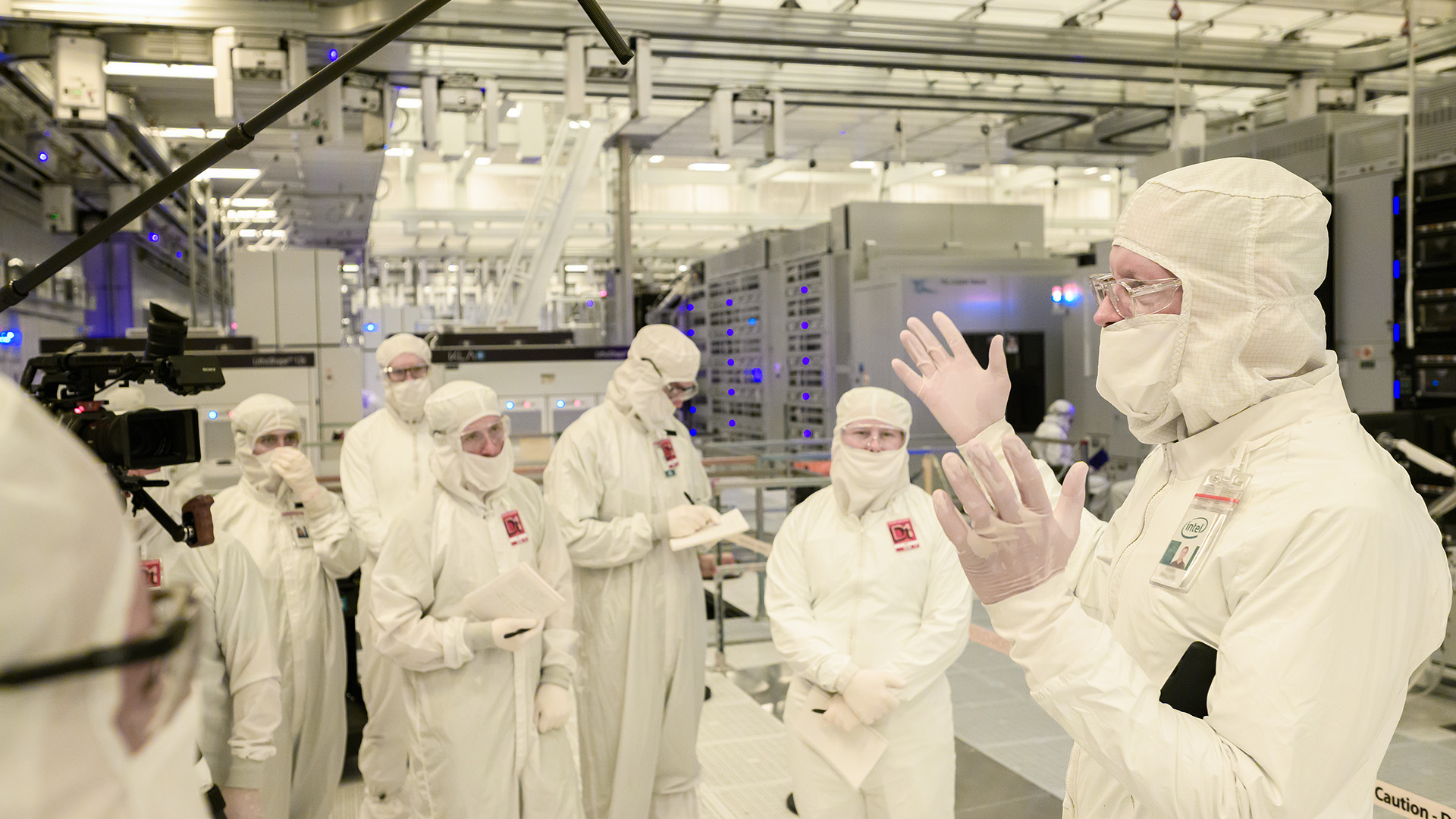
What We Do in the Shadows Season 6, Episodes 1-3 Review
The first three episodes of What We Do in the Shadows season 6 air on FX at 10 p.m. ET on Monday, October 21 and stream on Hulu the following morning.
A long-running television show is the closest thing to eternal life: a blessing or a curse, depending on how you look at it. Under the right circumstances, a Simpsons, a Grey’s Anatomy, or a General Hospital can just keep going and going and going for decades, and in those cases many of those years haven’t held a candle to the quality of the seasons that made the shows so popular to begin with. There have been times – particularly during its terrific second and third seasons – when What We Do in the Shadows seemed like it could riff on supernatural myths and legends with a longevity that could rival the back-from-the-grave roommates at its center. But, for better or worse, the FX mockumentary is now poised to go out on a high note rather than becoming an energy vampire that sucks the life force out of its fans.
In the often hilarious first three episodes of their sixth and final season, it sometimes feels like Nandor the Relentless (Kayvan Novak), Laszlo Cravensworth (Matt Berry), Nadja of Antipaxos (Natasia Demetriou), Colin Robinson (Mark Proksch), and Guillermo de la Cruz (Harvey Guillén) have only begun to tap the veins of rich, spooky/funny concepts Jemaine Clement and Taika Waititi first unearthed in their 2014 movie about four immortal doofuses trying to share a house without driving each other crazier than they already are. The TV spinoff has run since 2019, and it’s a testament to its aversion to low-hanging fruit that it’s only just getting around to spoofing one of horror’s foundational texts via Laszlo’s latest perversion of science. It’s a true TV rarity: a comedy that’s going out while there’s still plenty of life in it.
Part of this has to do with a commitment to comedy fundamentals that are only slightly younger than the residents of Staten Island’s dustiest manor home. What We Do in the Shadows has thrived as a quintessential ensemble comedy, honing and evolving what makes its characters and their relationships funny across dozens of episodes. (Another abnormality in this day and age three-seasons-and-out comedies.) The willingness to mix and match members of the cast is how we get libertine Laszlo and cardboard Colin teaming up for one of season 6’s most promising storylines, a once-inconceivable pairing building on the sparkling chemistry Berry and Proksch struck in past seasons. Their exploits in Laszlo’s laboratory epitomize What We Do in the Shadows’ blend of old-fashioned and newfangled: No other comic odd couple has made such inventive use of so many disembodied limbs.
It gives Guillermo a way to remain in the spotlight now that the reliable duo of Nandor and his newly independent, half-undead-no-more former familiar are on the rocks at the start of season 6. But that just creates an opening for Nadja’s buttinsky side, meddling in Guillermo’s guileless ascent at his new office job in scenes that draw on Demetriou’s knack for enthusiastically bullshitting her scene partners. Her delight in such a shoddy ruse – a joke escalated by the gaudy Brooks-Brothers-meet-Boulet-Brothers corporate fashions the wardrobe department devises for her – is infectious. And it only gets funnier once Nandor joins the act as the clumsiest janitor on Wall Street. For all the roommates’ sniping at each other, there’s a charming comfort and familiarity on display here – the type where Proksch and Demetriou can each score a laugh by tossing out an impression of Berry’s overworked diction (a fun followup to Novak’s dead-on impersonations of his castmates last season).
From that “we all know how this works by now” baseline, season 6 incorporates some clever self-reflection, introducing a previously unseen sixth member of the household: by-the-book bloodsucker Jerry the Vampire (Mike O’Brien). During Jerry’s 50-year “super slumber” (the writers picking up a bit of lore they introduced in season 3), Laszlo, Nadja, and Nandor fully abandoned the quest to overthrow humanity from their outer-borough perch – becoming more like humans themselves in the process. In Simpsons terms, Jerry is a little bit Frank Grimes, a little bit Poochie: A “regular” vampire who’s put out by how strangely everyone around him is behaving (and the fact that they’d invite humans into the house to document that behavior) and a dig at shows who try to wave away their approaching expiration date by shoehorning a new face into the cast. O’Brien’s dry befuddlement and Rip Van Winkle routine keep Jerry from feeling like a mere vehicle for droll navel-gazing, as does the encouraging season-long arc his awakening unlocks – an area that has never been a strong suit for the show. (Vampire nightclub, anyone?)
For all of these episodes’ merits, there remains a risk of repetition so late in the game: What is Jerry’s push to reignite the vampires’ mission if not the very same expectation Baron Afanas (Doug Jones) carried with him in the series premiere? Didn’t they do the “the vampire” naming convention with the Mark Hamill character who prompted Laszlo to go into hiding as Jackie Daytona in the all-timer episode, “On the Run”? And aren’t the notes of surrogate fatherhood in Laszlo and Colin’s experiment a rehash of what they went through when Colin was temporarily kiddie-sized (with a mind, temperament, and taste for Roblox to match) in season 4? Maybe it’s just testament to the quality of these three episodes – and the consistency of the ones that came before them – that these relatively minor quibbles stick out.
What we said about What We Do in the Shadows Season 5
Season 5 of FX’s What We Do in the Shadows delivers on last season’s cliffhanger ending, changing up character dynamics in a way that keeps the supernatural sitcom fresh. The first four episodes are chaotic, gore-soaked and packed with great gags, allowing the wild cast of characters to shine as they continue to discover new aspects of both the supernatural and mundane worlds around them. – Samantha Nelson
Read the complete What We Do in the Shadows Season 5 Review.
Anyone concerned about What We Do in the Shadows losing its freshness should be reassured by Guillermo’s new workplace, a private-equity firm called Cannon Capital Strategies. More than just an Industry/Wolf of Wall Street backdrop for Guillén pulling faces at the intrusions of his co-stars and the documentary crew, the setting provides one more opportunity to put a modern satirical spin on ancient bogeyman. After all, today’s model of private equity investing is a form of economic vampirism, loading its acquisitions down with debt while sucking all the money out of them until the point when selling the near-dead husk of a business is more profitable than keeping it running. (If you miss Toys R Us, blame private equity.)
There has to be a good reason why Nadja excels in the corridors of Cannon; and while there’s always a chance for a reversal or fake-out later in the season, monitoring the markets in Japan and China feels like a pretty convenient explanation for why Guillermo’s coworkers all clock in after sundown. Throw in master of 21st-century smarm Tim Heidecker as a senior partner who doesn’t bat an eye at an associate clearly bleeding out on a marble conference table, and you’ve got a sign of What We Do in the Shadow’s undiminished ability to goof on the ways the infernal and the unholy seep into our world.
What We Do in the Shadows has thrived as a quintessential ensemble comedy.
Which is to say nothing of season 6’s third episode, “Sleep Hypnosis,” a scarily well-written farce of magical powers from writer Marika Sawyer. Spiraling outward from the simplest of disagreements between the vampires – what to do with the tiny nook where Guillermo slept while in Nandor’s employ – the episode ultimately encompasses some light physical comedy for Proksch, Novak’s startlingly solid mimicry of Richard Nixon, and a running talking-head punchline about the episode’s namesake method of persuasion – “Is such a thing even possible?” – that takes on an almost musical quality by its third or fourth iteration. What We Do in the Shadows still turning out bangers as it winds up to a series finale: Is such a thing even possible? Yes, and sometimes all it takes is a different angle on the affections, frustrations, and anxieties of monsters we’ve come to know and love for years.





